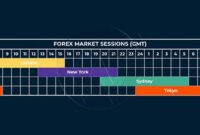Navigating the foreign exchange market can be challenging, particularly for newcomers. Understanding the potential for profitability requires a balanced perspective, combining realistic expectations with a commitment to education and informed decision-making. A practical approach, emphasizing risk management and strategic planning, is essential for success in this volatile yet potentially rewarding market.
Market Volatility
Currency values fluctuate constantly, influenced by global events, economic data, and geopolitical factors. This volatility presents both opportunities and risks.
Profit Potential
While substantial gains are possible, it’s crucial to acknowledge the inherent risks and the potential for significant losses. Profitability is not guaranteed.
Educational Resources
Access to comprehensive educational materials and training is essential for developing a strong understanding of market dynamics and trading strategies.
Risk Management
Implementing effective risk management strategies is paramount. This includes setting stop-loss orders, diversifying investments, and avoiding excessive leverage.
Realistic Expectations
Approaching the market with realistic expectations is vital. Overnight success is unlikely, and consistent profitability requires time, effort, and discipline.
Strategic Planning
Developing a well-defined trading plan is crucial. This plan should outline entry and exit points, risk tolerance, and overall investment goals.
Choosing a Broker
Selecting a reputable and regulated broker is essential for ensuring the security of funds and access to reliable trading platforms.
Continuous Learning
The forex market is constantly evolving. Continuous learning and adaptation are necessary to stay ahead of the curve and maintain a competitive edge.
Tips for Success
Tip 1: Start with a Demo Account Practice trading strategies in a risk-free environment using a demo account before committing real capital.
Tip 2: Focus on Risk Management Prioritize protecting capital by implementing appropriate risk management techniques.
Tip 3: Develop a Trading Plan Create a structured trading plan outlining specific entry and exit points, risk tolerance, and overall investment objectives.
Tip 4: Stay Informed Keep abreast of market news, economic data releases, and geopolitical events that can influence currency movements.
Frequently Asked Questions
How much money do I need to start trading forex? The required capital varies depending on the chosen broker and trading strategy. It’s advisable to start with a smaller amount and gradually increase investment as experience grows.
Is forex trading risky? Yes, forex trading carries significant risk due to market volatility. It’s essential to understand and manage these risks effectively.
Can I trade forex part-time? Yes, many individuals trade forex part-time. However, it requires dedication and commitment to stay informed about market movements.
How much can I earn trading forex? Potential earnings vary greatly and are not guaranteed. Profitability depends on various factors, including market conditions, trading skills, and risk management strategies.
What is the best time to trade forex? The forex market operates 24 hours a day, five days a week. The best time to trade depends on individual preferences and trading strategies, considering market activity and volatility during different trading sessions.
Do I need specialized software to trade forex? While not strictly necessary, utilizing a reliable trading platform provided by a reputable broker is highly recommended for accessing market data, executing trades, and managing positions effectively.
Successfully navigating the complexities of the foreign exchange market requires a combination of knowledge, discipline, and a realistic understanding of the potential rewards and risks involved. By prioritizing education, risk management, and strategic planning, individuals can increase their likelihood of achieving their financial objectives in this dynamic and ever-changing market.



